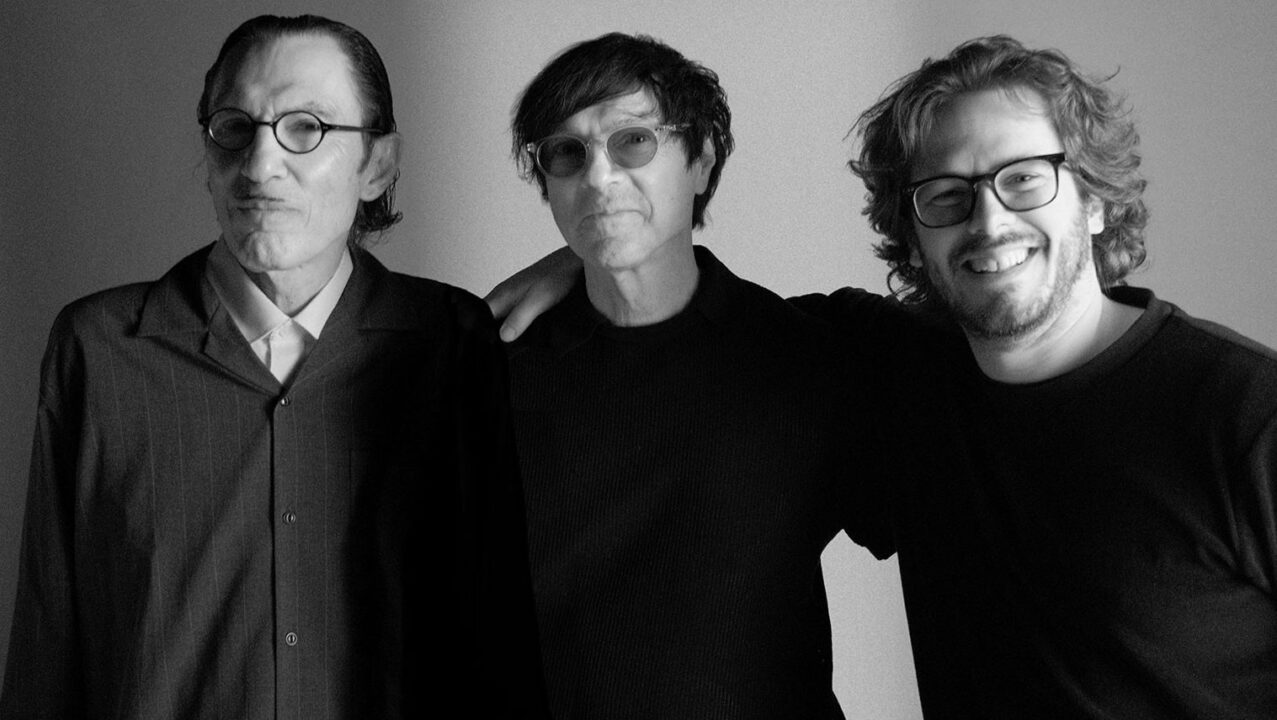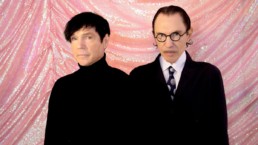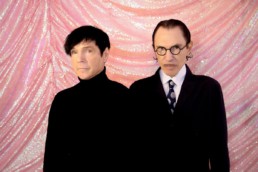‘The Sparks Brothers’ Review: Edgar Wright Fanboys Hard For Sparks
This is a custom heading element.
This review originally ran as part of our Sundance Film Festival 2021 coverage.
Spanning every bit of two hours and twenty minutes, it’s clear that Edgar Wright feels indebted to both educate, as well as attempt to make audiences appreciate, art-pop duo Sparks–the most influential band that you’ve never heard of–in his first documentary, The Sparks Brothers.
An unabashed pop music fan himself (whose own films’ perfectly-placed jukebox needle drops have attributed to his own film geek following), Wright makes it his mission to not only tell the story of the Mael brothers–Ron and Russell, whose band “Sparks” not only spans over five decades in which the pair made 25 studio albums and 500 songs–but capture their undefinable creative identity, and show how real commercial success would evade them over their entire career while they refused to compromise their vision.

But Wright the established filmmaker is up for the job, telling Sparks’ story with an inspired assortment of zany and diverse animation styles whose tongue in cheek humor mix with the band’s own ironical detachments. By intercutting these animations with an array of interviews from the music and entertainment world–including Beck, Mike Meyers, Jason Schwartzman and Flea (as well as Wright himself), who all profess their love for Sparks–it’s a wealth of riches to tell Sparks’ story.
To understand Sparks is to understand the Mael brothers: born in Santa Monica, California (already confusing, as most everyone thought they were a British band), there’s Ron (the “older” one) and Russell (the “cute” one), who were raised on a diet of Hollywood and cinema by their late father (who passed away before the boys were teens). It was this level of theatricality and cinema that would inspire the band aesthetically, and would later influence them philosophically through the appreciation of French new wave film, in which the brothers’ self-awareness would rally them to churn against the mainstream of pop music that they’d would eventually operate in.
Of course, Ron and Russell themselves are present in this doc, too. So too do they want a part in constructing this (their) story, as their authorship has always been integral to their presentation. What I found interesting about The Sparks Brothers is that, while the Mael brothers were clearly all-too gleeful playing pop-provocateurs throughout their career (Ron famously sported a sort-of Hitler moustache, which he would say curiously never got mistaken for Chaplin), it’s clear that they were in some small part motivated by a desire to break into the mainstream, to be more famous than they were, or to a more simple degree, “be understood.”

One of the most surprising and telling reveals is when, after the album of their first band, “Halfnelson,” didn’t sell well, it was their manager at the time who advised them to change their name to what would become Sparks (as they were told they looked like the Marx Brothers). While Sparks would (and should) be the last band in the world to be accused of having motivations to work to fulfill audiences reactions (which they never did, to be clear), it is telling that a constant need to work against rejection fueled them to achieve pinnacles of creative accomplishments that, who knows, might not have happened otherwise.
Sparks’ prolific output would be for our collective cultural benefit, as Ron (the songwriter) and Russell (the voice) would create some of the most genre-defining music of the ’60s, ’70s and ’80s, which would go on to predate electronic synth music like New Order and Pet Shop Boys. So even if you’re not aware of Sparks’ music (which you likely aren’t), or don’t entirely “get” their music (which mass audiences clearly didn’t–hence this doc), The Sparks Brothers is a fantastically abounding story about creative artists who were unafraid to chart forward, to re-define themselves, to change up the formula and evolve to new places, which is a rare but necessary thing for artists to do today. Sparks wanted to stay true to their selves and never compromise on their unique vision. So they chose to be the best band that you’ve never heard of–until now.
Ryan Rojas
Ryan is the editorial manager of Cinemacy, which he co-runs with his older sister, Morgan. Ryan is a member of the Hollywood Critics Association. Ryan's favorite films include 2001: A Space Odyssey, The Social Network, and The Master.


